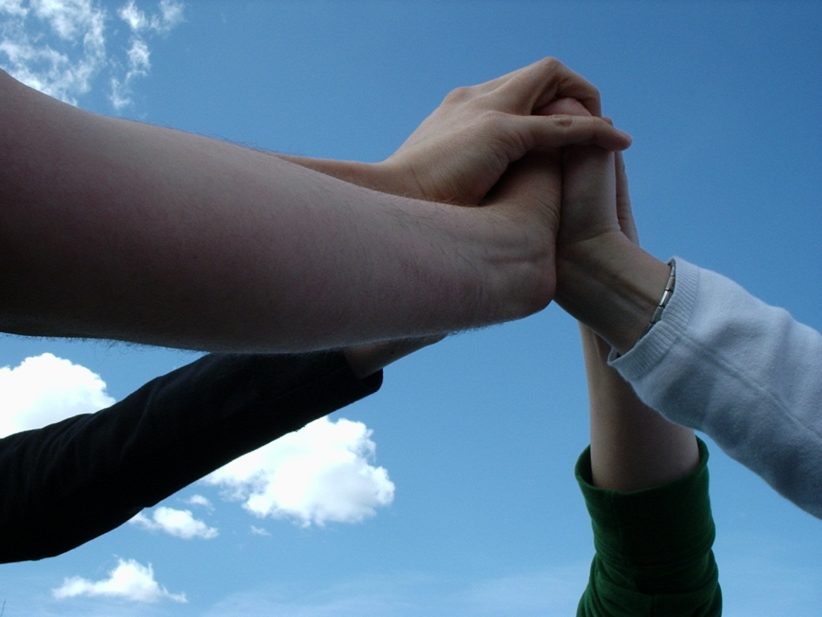Elizabeth Clark (BSc Hons Open, MA TESOL Bath) and John Hoffmire, Chairman of the Center on Business and Poverty and the Carmen Porco Chair of Sustainable Business at the Center.
As Covid-19 continues impacting on both the health and economies of nations around the world, it is perhaps time to focus on how to occupy those who may be on ‘furlough’ for the foreseeable future.
Some may be able to resume their regular employment. For example, those who have technological skills and suitable roles are probably able to continue to work on an online basis, and many with medical, scientific and caring skills remain involved with reducing the effects of the pandemic, whilst others who are employed in key areas, such as delivery drivers, banking personnel and retail workers continue to keep businesses trading as much as possible. However the question has to be asked how does everyone else keep occupied, when society may need to be rebuilt, when government funds and resources have been ‘maxed out’ to manage societal support during this difficult episode. This article therefore looks at various options available both historically and currently in the voluntary sector. Hopefully something may inspire readers to get involved with whatever is available locally to them.
In the United States, during the Great Depression, from 1933 to 1942 the Civilian Conservation Corps (CCC) was set up under the direction of Robert Fechner, as part of Roosevelt’s ‘New Deal’ Its aim was to give employment to men in their late teens and twenties, and they were assigned to work on a variety of civil engineering projects including the Hoover Dam, La Guardia airport and Great Smoky Mountain National Park. Participants were given shelter, food and a wage, the majority of which had to be sent back to help support their families at home. Over three million males participated, which gave them valuable work experience, and had the benefit of improving and conserving much of the nation’s natural landscape resources. It ended because the USA entered World War Two after the attack on Pearl Harbor in December 1941.
Another voluntary organisation, began life in the United Kingdom in 1938 and continues its valuable work today, though it has gone through some name changes as time has passed. Originally known as the Women’s Voluntary Services for Air Raid Precautions, its responsibilities increased to cover such duties as the local organisation of evacuees, giving first aid to bombing victims and knitting socks and gloves for the merchant navy. In organising women, some of whom’s husbands were already serving either directly in the Armed Forces, or as reservists, during a time of national difficulty, it gave them a sense of identity and purpose. Lady Stella Reading, the founder, said “Too many people think of volunteers as a means to an end, as cheap labour. True voluntary service is nothing of the kind. It is, in fact, the gift of a thoughtful person of their skill, their energy and their time.” Now it is known as the Royal Voluntary Service, and is currently managing the National Health Service’s Volunteer Responder Scheme, for which over 750,000 signed up for during two days in March 2020, to help transport medicines, stay in contact with those with high risk factors, and transport patients where necessary in response to the corona virus crisis.
Some community service is not voluntary but is ordered as part of a ‘restorative justice’ programme, depending on the severity of the criminal or civil offence. For example in the United Kingdom, people may be ‘ordered’ to donate between 40 to 300 hours, on projects such as clearing litter from parks and roadsides, painting fences and working for a charitable organisation. Those who lead these groups of community servers are often volunteers themselves who have received supervisory training to ensure the activities are run smoothly.
For young people aged 16-17 in the United Kingdom, there is an option to join the National Citizenship Service scheme, where one can participate with a team of others to work on a social action project of some kind to build skills such as budgeting, project planning and conflict resolution. Over half a million have already participated in this scheme.
Another volunteering option recently launched in the United Kingdom is the new ‘Land Army’. British farmers and growers, already suffering from losing many seasonal workers because of the impact of Brexit, then experienced even more difficulties because of the excessively wet winter, which has now been compounded by a further lack of workers because of the effects of Covid-19. To avoid foods rotting in the fields, two brothers, Guy and Ben Hapgood have set up an organisation to connect farmers and potential workers, with ‘social distancing’ policies in place to encourage recruitment and reduce the risk of contagion.
In conclusion, it would seem that throughout the past 90 years, volunteering to serve in one’s community has not only met real social and economic needs, but has also served to ‘upskill’ the participants by building both ‘hard’ skills, like construction work and cookery, and but also ‘soft skills’ such as being able to communicate with others, develop team work and negotiation strategies and even good humour in an emergency situation.
References:
Holland, B. (2017) https://owlcation.com/humanities/The-Great-Depressions-The-Top-Five-Public-Works-Projects-of-the-New-Deal accessed on 8 April 2020.
The Land Army: https://www.thelandarmy.org.uk/about-1 accessed on 8 April 2020.
National Citizen service: https://wearencs.com/what-is-ncs accessed on 8 April 2020.
Royal Voluntary Service website: https://www.royalvoluntaryservice.org.uk/about-us/our-history accessed on 8 April 2020.
UK Government website: https://www.gov.uk/community-sentences and https://www.gov.uk/government/get-involved/take-part/national-citizen-service accessed on 8 April 2020.





